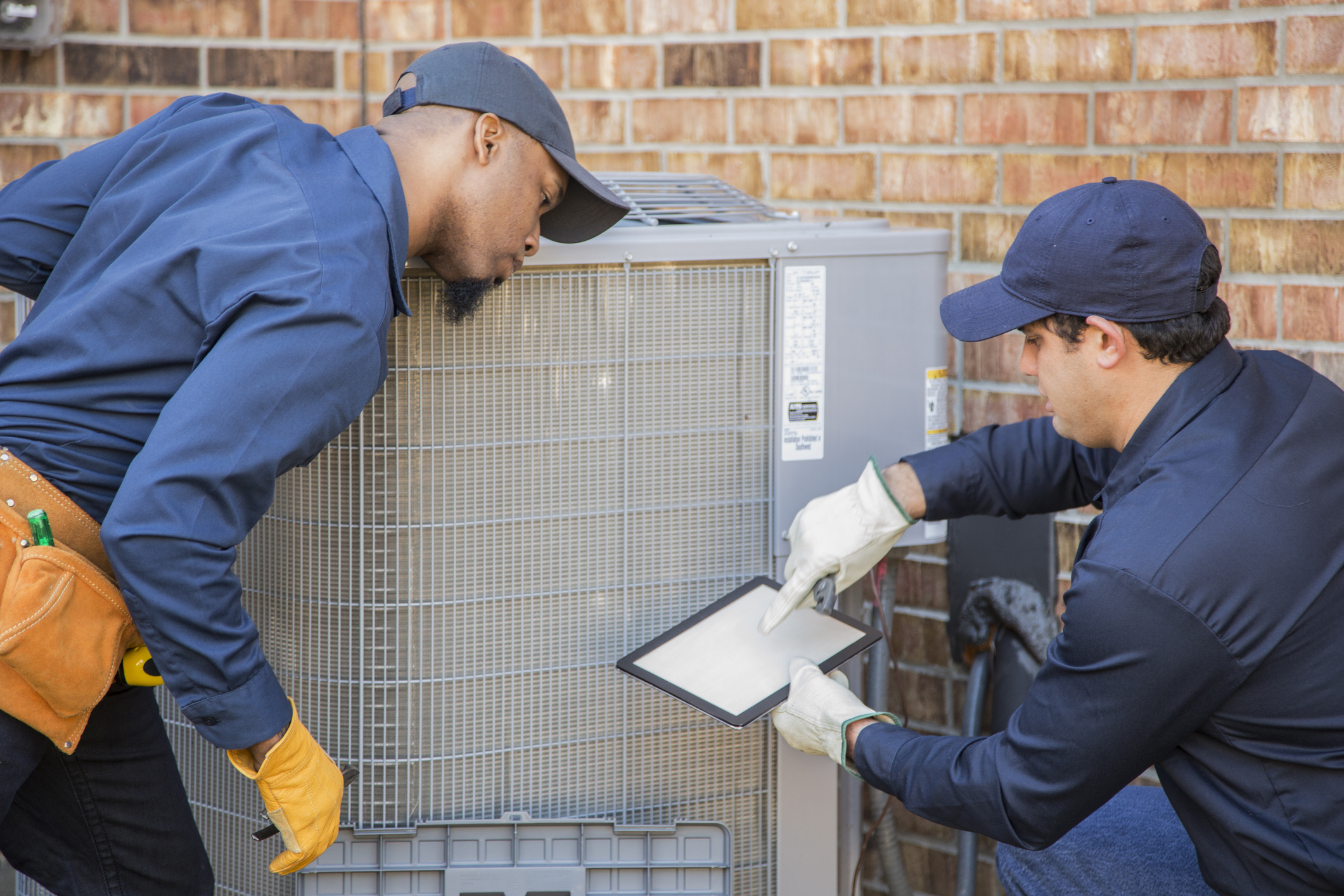Air conditioning, heating, and refrigeration are essential home components in Texas. HVAC systems are what makes Texas homes comfortable. And, when mishaps happen, we depend on a special group of individuals known as HVAC technicians to restore these systems to working order.
Is HVAC Technician a Good Career Choice in Texas?
HVAC technicians are in high demand in Texas because of the hot summer climate and cold winters. The weather fluctuations in Texas make it essential to have a well-functioning HVAC system in homes and businesses. That’s why there’s demand for qualified HVAC technicians who can install, maintain, and repair these systems.
The advancement in technology also provides job security in this field. As new HVAC systems and smart thermostats are developed, there will be a need for HVAC technicians who are trained to work on these advanced systems. So, as an HVAC technician, you can find work if you’re willing to stay up to date on the latest advances in the field.
What Does an HVAC Technician Do in Texas?
An HVAC technician’s job involves keeping a residential or commercial building as comfortable as possible. This can involve a variety of tasks, including:
HVAC Installation
As an HVAC technician in Texas, you will install new systems in homes based on the specifications of an architectural engineer or your incisive analysis of what’s best for that house. Therefore, you’ll be required to complete calculations that determine the correct system size based on the square feet of the house. You’ll also read blueprints so that you can install the ductwork correctly.
HVAC Testing
After installing an HVAC system, you’ll need to test it to ensure its operating properly. This includes checking airtightness, CFM output, and static pressure. If something isn’t working right, you’ll need to diagnose the issue and find a solution.
Perform Regular Maintenance
Regular maintenance is key to keeping an HVAC system running smoothly and efficiently. As an HVAC technician in Texas, you’ll be responsible for changing air filters, cleaning coils, and checking Freon levels. This preventative maintenance will help extend the system’s life and keep it running at peak performance.
Repair HVAC System When Necessary
Regardless of how well you maintain an HVAC system, there will eventually be a need for repairs. As an HVAC technician in Texas, you’ll be responsible for diagnosing and repairing issues with compressors, fans, motors, and other parts of the system. This can involve anything from soldering a loose connection to replacing a major component.
Where Does an HVAC Technician Work?
Many HVAC technicians in Texas work for HVAC contractors who handle the installation and repair of systems for both residential and commercial customers. Others may find employment with facilities management companies that handle the maintenance and repair of HVAC systems for schools, hospitals, office buildings, and other large facilities. Still, others may choose to open their own HVAC businesses.
How to Become an HVAC Technician in Texas
If you are aspiring to become an HVAC technician in Texas, there are requirements you must meet. You’ll need to attend an HVAC training program that’s been approved by the Texas Department of Licensing and Regulation. Upon completion of your training, you’ll need to pass both a written and practical exam administered by the Texas Department of Licensing and Regulation (TDLR). After which, you’ll be issued a license that allows you to work as an HVAC technician in Texas.
You will also need certification from the Environmental Protection Agency. This certification is required by law to work with refrigerants. This chemical is what produces the cooling effect in HVAC systems. The EPA must ensure you are well equipped to handle refrigerants and other necessary but toxic compounds when doing your job.
How To Start Your Own HVAC Company in Texas
The requirements are slightly different if you are interested in starting your own HVAC company. You will need to have at least four years of experience working as an HVAC technician and pass a business and law exam administered by the TDLR.
The laws also require you to choose a business structure for your company. They include sole proprietorship, general partnership, limited liability company (LLC), and corporation. Each business structure has its own requirements, pros, and cons. An LLC business structure offers limited liability protection, which means your personal assets are protected in case your company is sued.
You’ll also need to get liability insurance and workers’ compensation insurance for your company. These insurances protect you and your employees in case of accidents or injuries while on the job. Moreover, you must follow OSHA standards to ensure a safe working environment for your employees.
Final Thoughts
If you’re interested in a vocation that offers flexibility, job security, and the opportunity to work with cutting-edge technology, then a career in HVAC may be right for you. Take the first step and learn more about CyberTex’s HVAC program. Learn a highly sought-after trade, and we will be with you every step of the way.
HVAC Technician Diploma
With more than two decades of success in the medical, health, and IT sectors, we added an HVAC course to our curriculum. We are proud to announce that we have flexible day and evening classes for the HVAC program.
CyberTex’s HVAC program can be completed in as little as 11-month attending full-time with the flexibility of day and evening classes. You will be eligible to take the EPA – 608 certification from the US Environmental Protection Agency with our training. Contact us today to learn more.





